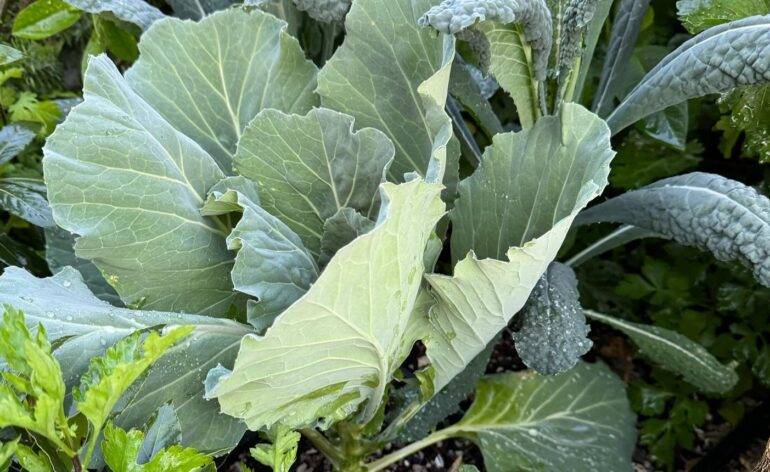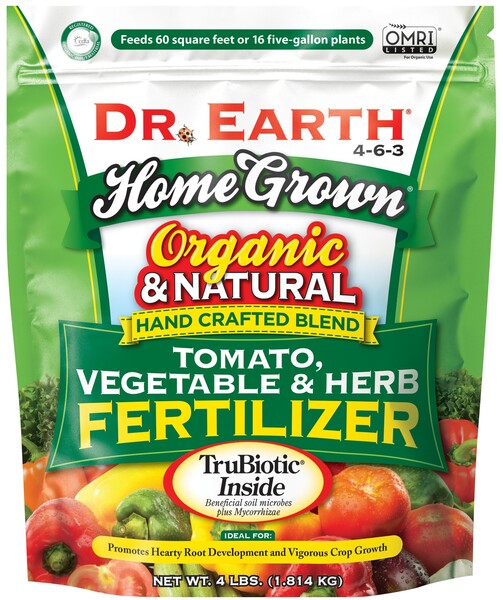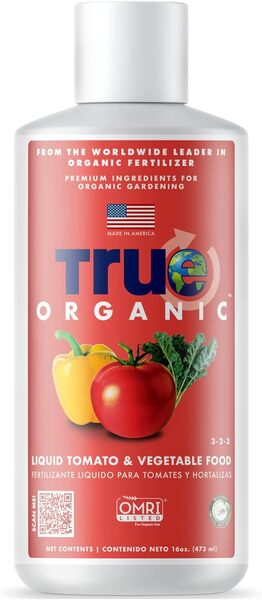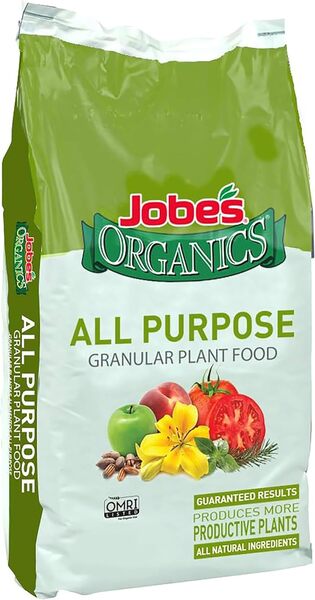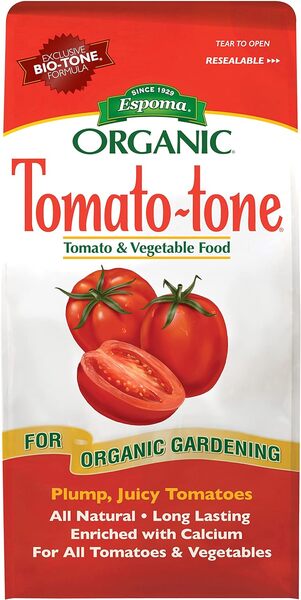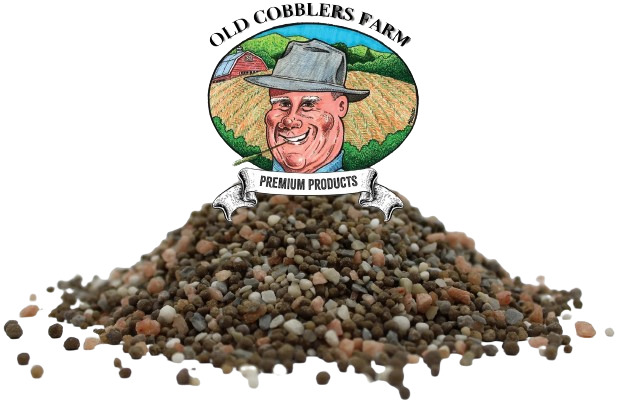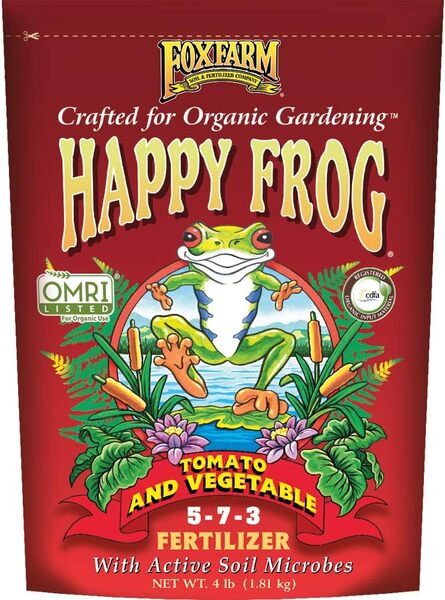6 Best Fertilizers for Vegetable Gardens to Prosper
We independently evaluate all recommended products and services. If you click on links we provide, we may receive compensation.
Fertilizing your vegetable garden is an essential step towards creating a healthy growing environment for your future salads and side dishes, not to mention increasing yields.
When you find the best fertilizers for vegetable gardens for your unique soil conditions and crops, you won’t believe how large, and how quickly, your vegetables can grow. Simply put, providing your plants, flowers, or lawns with the nutrients they need is a must for any serious vegetable gardener.
However, there are tons of products out there that claim to be the best fertilizers for vegetable gardens. That’s why I’m happy to bring you 6 great options whose performance holds up to scrutiny.
With that, let’s get right into it!
Key Takeaways
After carefully considering all the different fertilizers I’ve used over the years, as well as performing extensive online research into some unfamiliar products, I’ve come up with a list of 6 awesome products for you to consider adding to your gardening routine. Overall, I’ve recommended Dr. Earth Organic 5 Tomato, Vegetable & Herb Fertilizer as the chart-topper among the best fertilizers for vegetable gardens for several reasons. First off, it’s made from high-quality organic ingredients that will do a lot to contribute towards soil health and your garden’s yields. It’s also a very flexible fertilizer that can be used for many different types of vegetables, making it a great choice for home gardeners who don’t focus specifically on any one type of vegetable.
However, I have also included a couple of options that are tailored to specific varieties of vegetables like Old Cobblers Farm Seed Potato Fertilizer (which is useful for anyone who grows a lot of root vegetables) and the tomato-focused Espoma Organic Tomato-tone 3–4–6 with 8% Calcium.
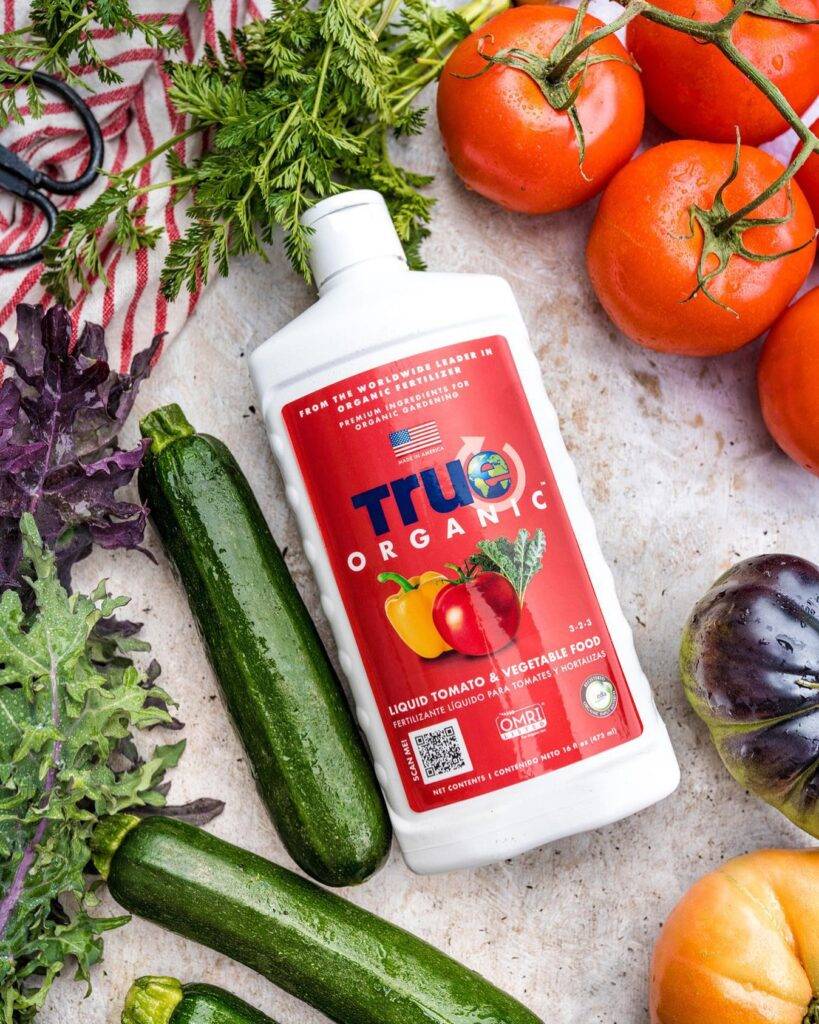
true_organic / Instagram
Best Overall: Dr. Earth Organic 5 Tomato, Vegetable & Herb Fertilizer
Why this is a quality choice: Dr. Earth’s fertilizer is the optimal choice for outdoor vegetable cultivation, boasting a potent mix of nutrients and active microorganisms. It provides extensive coverage, ensuring robust soil and healthy plants across a wide area. Moreover, the fact that it’s pet- and child-safe alleviates any worries you might have about post-application safety.
Who is this for? One of the best fertilizers for vegetable gardens, this one is ideal for outdoor gardeners who prioritize soil health and like to use fertilizers that contain bio-active ingredients.
Flaws but not deal-breakers: Although the high humic acid levels in this product offer numerous benefits, overapplication can pose challenges. However, with careful use, this minor drawback doesn’t undermine its overall effectiveness.
Active ingredients: Land plants, ocean plants, fish, and fish bones, plus soil microbes and mycorrhizae | Herbicides: None | N–P–K: 4–6–3 | Package size: 4 lbs
Best Budget: True Organic Tomato and Vegetable Liquid Fertilizer
Why this is a quality choice: Liquid fertilizers are a great way to deliver a lot of nutrients to vegetables in a convenient and cost-effective manner. This product, from True Organic, is no exception, giving gardeners the chance to fertilize a wide area when mixed with water. It’s also another child- and pet-safe product, meaning that you can use it widely without worrying about its health impact.
Who is this for? This product is ideal for gardeners who want to fertilize a lot of growing area without spending a ton of money.
Flaws but not deal-breakers: The task of mixing this product with water and then applying it takes a little bit of care and knowledge, but it’s not unmanageably difficult if you follow the manufacturer’s instructions carefully.
Active ingredients: Fish Solubles Stabilized with Phosphoric Acid, Reduced Sugar Molasses, Corn Steep Liquor, Soy Protein Hydrolysate, Sugar Beet Extract, Sulfate of Potash, and Kelp Extract | Herbicides: None | N–P–K: 3–2–3 | Package size: 16 Ounces
Best All-Purpose: Jobe’s Organics Granular All Purpose Fertilizer
Why this is a quality choice: The fact that Jobe’s Organics Granular All Purpose Fertilizer is a perfectly balanced fertilizer that can be used for all sorts of plants (vegetables very much included) makes it a very convenient product to have around. Sometimes, it’s difficult to find and use the absolutely ideal fertilizer for every type of plant you grow, so you want to have something that will work well with everything—which is exactly the selling point of this fertilizer.
Who is this for? Home gardeners who grow several different types of plants can benefit from having a bag of this all-purpose fertilizer around the house.
Flaws but not deal-breakers: This is one of the best fertilizers for vegetable gardens. However, the manufacturer recommends reapplying this fertilizer every two or three weeks, which is much more often than some of its competitors.
Active ingredients: Feather meal, nitrogen, phosphorus, potassium, and processed manure | Herbicides: None | N–P–K: 4–4–4 | Package size: 16.2 lbs
Best for Tomatoes: Espoma Organic Tomato-tone 3-4-6 with 8% Calcium
Why this is a quality choice: In my view, Espoma Organic Tomato-tone is the top tomato fertilizer on this list. Its well-balanced formula includes essential nutrients like calcium, complemented by all-organic ingredients such as Feather Meal and Poultry Manure, enriching the soil with beneficial microbes for natural soil recovery and robust tomato plants.
Who is this for? This fertilizer is a versatile option suitable for anyone cultivating tomatoes, regardless of the garden size. It eliminates the need for multiple products, ensuring hassle-free gardening and desired results.
Flaws but not deal-breakers: As an organic product, it does emit a strong odor, which may pose a challenge for indoor growers or those sensitive to smells.
Active ingredients: Feather meal, poultry manure, bone meal alfalfa meal, sulfate of potash, sulfate of potash magnesia, and greensand, plus soil microbes | Herbicides: None | N–P–K: 3–4–6 | Package size: 4 lbs
Best for Potatoes: Old Cobblers Farm Seed Potato Fertilizer
Why this is a quality choice: Old Cobblers Farm Seed Potato Fertilizer is an excellent choice for root vegetables like potatoes because of its precise blend of nitrogen, phosphorus, and potassium, essential for boosting yields. With no extra additives, its long-lasting granules ensure a minimal need for reapplication, saving time and effort for home gardeners.
Who is this for? This product is ideal for gardeners seeking a fuss-free approach to growing potatoes, resulting in a successful crop without constant monitoring.
Flaws but not deal-breakers: As a straight N–P–K fertilizer, supplementing with other organic materials may be necessary to rejuvenate the soil post-harvest.
Active ingredients: Bat guano, kelp meal, alfalfa meal, and fish meal | Herbicides: None | N–P–K: 8–16–16 | Package size: 10 lbs
Best Organic: FoxFarm Happy Frog Tomato and Vegetable Fertilizer Mix
Why this is a quality choice: FoxFarm’s Happy Frog fertilizer is a standout option in my experience, offering eco-friendly solutions for gardeners focused on growing exceptional vegetable crops while considering environmental impact. I’ve had a lot of positive experiences with the FoxFarm brand, finding that they always put out products that make a huge impact while remaining eco-friendly.
Who is this for? This fertilizer, with its high nitrogen and phosphorus but low potassium content, is especially suitable for the initial growth phases of vegetables like tomato plants.
Flaws but not deal-breakers: Depending on your soil’s potassium levels, you may need to transition to a higher-potassium fertilizer once your plants enter the flowering stage.
Active ingredients: Nitrogen, phosphorus, and potassium | Herbicides: None | N–P–K: 8–16–16 | Package size: 10 lbs
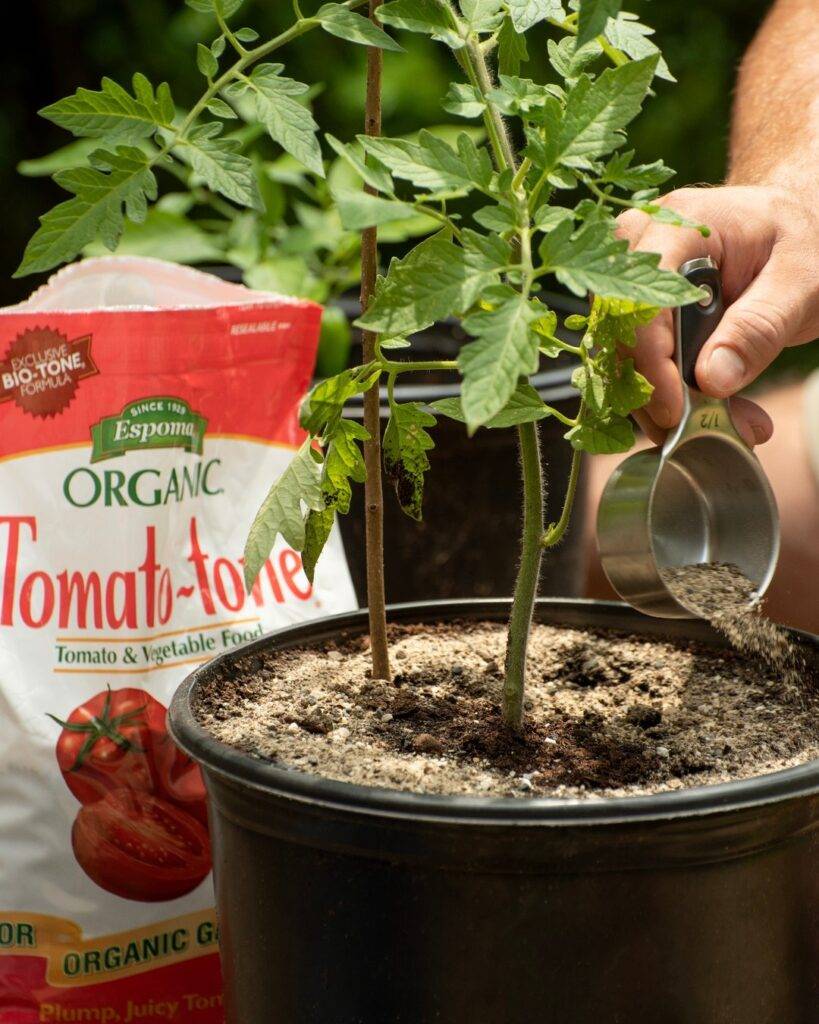
caspianhorticulturegroup / Instagram
Buying Considerations for The Best Fertilizers For Vegetable Gardens
Ingredients
As just about every gardener will agree, you want to be very careful about what ingredients you’re putting into the soil of a vegetable patch (after all, you’re going to end up eating what grows there). As a result, I always put a lot of emphasis into choosing fertilizers that contain only high-quality natural ingredients like alfalfa meal, fish meal, and kelp meal.
These types of compounds are the sort of thing that replenishes soil out in nature, so you shouldn’t ever be worried about using them in your garden. You can also keep an eye out for products that contain bio-active ingredients like soil microbes and mycorrhizae, which can help your soil come alive.
Where you plan to grow
Where you’re planning to grow your vegetables can also make a big difference in terms of what vegetable garden fertilizer it makes sense for you to pick out. For example, you might want to choose a different fertilizer for renewing an in-ground vegetable patch than you would use for filling a new raised garden bed or grow bag.
Not only will the quantity of fertilizer that you’re going to need be different, but you’ll also have to consider the ease of applying different types of fertilizer. A liquid or granular fertilizer will be easy to spread over a large area, whereas a fertilizer that’s already mixed with soil will be more difficult to use outdoors.
N–P–K
Finally, N–P–K is the most important buying consideration when it comes to choosing the best garden fertilizer for your needs. N–P–K stands for nitrogen, phosphorus, and potassium, which are the three chemical compounds that all plants need to grow. However, different types of vegetables need different amounts of each to thrive.
Tomatoes, for instance, require a fairly balanced N–P–K ratio, whereas root vegetables like potatoes and beets need less nitrogen but more phosphorus and potassium. As a result, it’s advisable to research the nutritional needs of the different types of vegetables you’re planning on growing in order to find a fertilizer that will work reasonably well for all of them.
How I Choose These Products
Planting my vegetable garden is one of my favorite activities throughout the entire year, and it’s been that way for well over a decade at this point. What that means is that I’ve accumulated a lot of experience using different types of fertilizers for different types of plants. This gives me a lot of insight into the product category, all of which I’ve used to create this list of the 6 best fertilizers for vegetable gardens.
On top of that first-hand experience, I also did a lot of online research into how other gardeners have found these products to perform in their own gardens. I was able to remove a couple of products, as well as add one or two, based on issues or benefits I wasn’t aware of before looking into them. I hope that you were able to find a fertilizer on this list that you’re excited to add to your soil this spring.
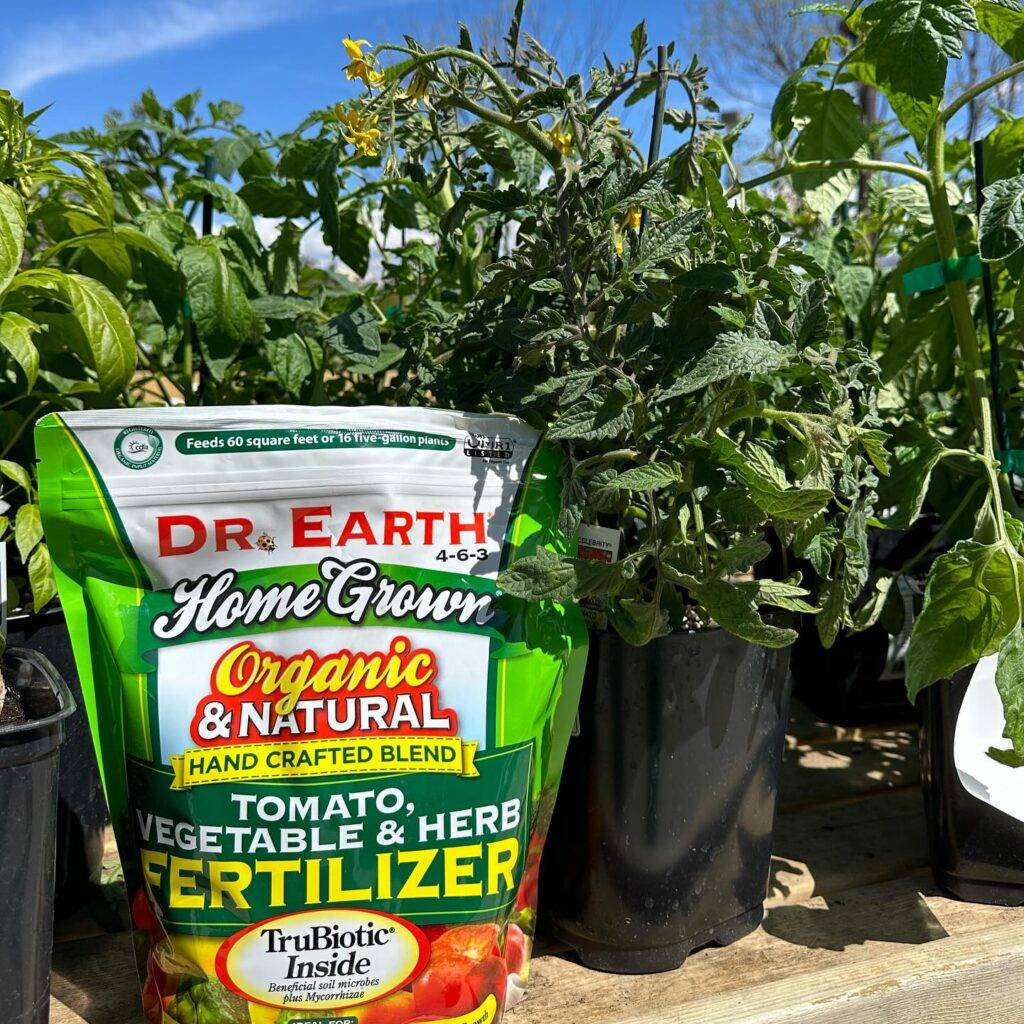
louies_nursery / Instagram
Final Verdict
Overall, Dr. Earth Organic 5 Tomato, Vegetable & Herb Fertilizer is my top choice among the best fertilizers for vegetable gardens on account of its excellent ingredients, wide applicability, and the presence of vital bio-active ingredients in the mix. I’ve used the product in my own garden for years, and I can barely believe the yields I get at harvest time as a result. If you’re looking for a simple-to-use and incredibly effective all-purpose vegetable fertilizer, then you don’t need to look any further.
FAQs
What fertilizer is needed for top dressing vegetables?
Top dressing is the practice of adding additional fertilizers overtop of already growing plants in order to replenish nutrients like nitrogen in the soil. Exactly which fertilizer you should use depends on the types of vegetables you’re growing and the underlying growing conditions (such as whether you’re growing indoors or outdoors). For example: if you find that your soil needs more nitrogen and you’re growing nitrogen-hungry vegetables, then you should choose high-nitrogen fertilizer.
Is compost or fertilizer better for vegetable gardens?
This isn’t really an either or question, since you can use both fertilizers and composts in your vegetable garden at the same time. Although a compost won’t have the same concentration of N–P–K nutrients as a fertilizer will, it does provide benefits to soil health based on natural processes. I’d always recommend using both in order to avoid exhausting your soil over the course of several growing seasons.
Which fertilizer makes vegetables grow faster and healthier?
Since fertilizers contain nitrogen, phosphorus, and potassium—i.e. the nutrients that all plants need to grow—they are able to make vegetables grow faster and healthier. The absolute best fertilizer for your vegetable garden depends on a variety of factors, such as the exact types of vegetables you’re growing and the underlying soil conditions. That means that there isn’t any one fertilizer that will make vegetables grow faster and healthier than all other options.

